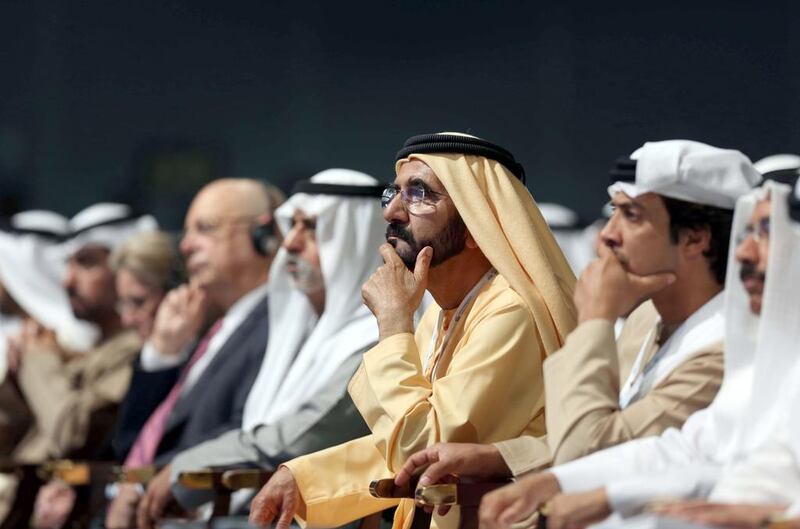DUBAI // Unemployed Emiratis who are fit and able to work have been told to stop relying on state welfare.
“The culture of society is that they think social assistance is an acquired right,” said the Minister of Social Affairs, Mariam Al Roumi.
“We encourage people to take training programmes to employ them. But they refuse to work even if they can get more from their jobs than from social assistance.
“They think they deserve this money. But there are more needy people. This is a negative thing.”
When Ms Al Roumi’s ministry cut the amount of financial assistance given to those who turned down training and employment opportunities, it was forced to reverse the decision.
“There was a media avalanche and Emirati society was upset. The citizens changed the ministry’s decision,” she told the second annual Government Summit in Dubai.
More than 92,500 Emiratis receive monthly state benefits: the disabled, nationals married to expatriates, some unemployed, single women, divorcees, widows, orphans, abandoned women and people of unknown parentage.
Ms Al Roumi said there was no limit to the help available to those with no income. “Kuwait puts a ceiling but the UAE gives assistance to everyone who is needy. Even if someone could have married 60 times and had 500 children, we will provide assistance if they have no revenue.”
She said the Government’s focus on development was reflected in its Dh140 billion annual budget, more than half of which was allocated to the ministries of health, education and social affairs and other departments that delivered social services.
“The UAE focuses on quality and the wellbeing of citizens and plays a mixed role of welfare and development. The state takes care and provides welfare, but allows them to develop and integrate. Social service is based on rights, and we believe in social justice.”
More than 3,600 delegates and 60 speakers on government, business, transport and education are attending the three-day summit at Madinat Jumeirah.
Reem Abu Hassan, Jordan’s minister of social development, told the summit welfare was an issue in her country too.
“We have a welfare state which means there is a complete dependency whether a person has high or low income.
“This is the main problem. We must move from being welfare states to empowering states. What we face in ministries is that people expect social services irrespective of their income and because of the belief that the state has to provide for its citizens.”
Ms Roumi said the UAE had developed welfare strategies and programmes based on practices in Scandinavia.
“We don’t take models as a whole. For instance, we insist elders should stay with families instead of being sent to homes,” she said.
“We have launched ambulatory services with specialists and nurses who visit houses to care for the elderly. There are daycare centres for the elderly, where they come in the morning and leave in the evening. There is only one centre in Ajman where people can stay over. We take experiences and adapt them to the UAE.”
In the past, the Federal National Council has urged the minister to increase state entitlements and create new unemployment benefits for jobseekers. She has insisted that this would entail even greater reliance on the state, and that her ministry would provide “social help” but not “social security”.
By law, she has said, unemployment benefits should go only to those unable to work. The ministry is reviewing the social welfare law.
pkannan@thenational.ae
* Additional reporting by Ola Salem






